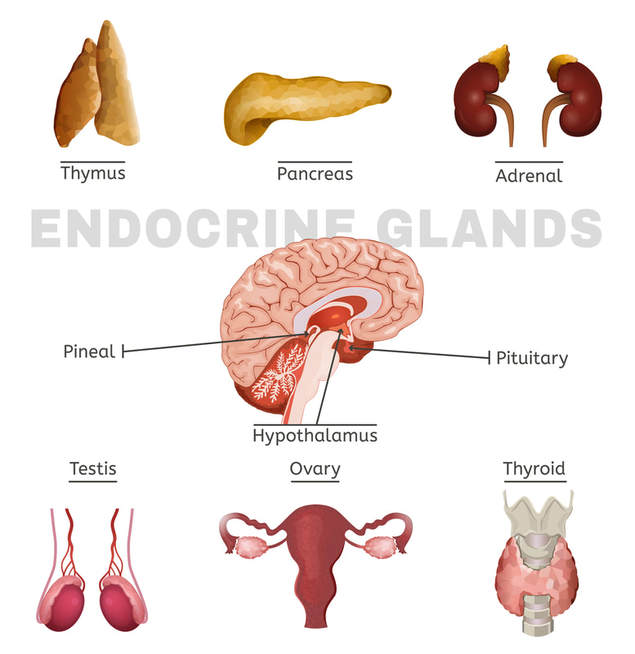What is the endocrine system?
The endocrine systems is a way for body parts to speak to each other. Chemical messangers circulate in the blood stream from a gland that secretes the hormone to a receptor site in the body.
The endocrine system is made up of many organs including these primary organs:
There are also organs in the body that have a secondary endocrine function. These include:
The endocrine system is made up of many organs including these primary organs:
- Pancreas
- Thyroid gland
- Parathyroid gland
- Adrenal glands
- Hypothalamus
- Anterior Pituitary gland
- Pineal gland
- Ovaries
- Testis
There are also organs in the body that have a secondary endocrine function. These include:
- Bones
- Kidneys
- Liver
- Heart
Pancreas
The pancreas is both an endocrine and an exocrine organ in the body. To learn more about the exocrine function of the pancreas visit the gastrointestinal system page. The endocrine function of the pancreas includes production of insulin, a hormone to decrease the glucose in the blood, and glucagon, a hormone that increases the glucose in the blood. These hormones work together to maintain a stable blood glucose level.
Diabetes
Diabetes is essentially when the body is no longer producing enough insulin to lower the blood sugar to a normal limit. Go to the diabetes page for more information on how what diabetes is and how to diagnose and treat it.
Insulinoma
An insulinoma is a tumor within the pancreas that releases insulin into the bloodstream. Patients with insulinomas have trouble regulating a normal blood glucose level and can start seizing from being hypoglycemic (low blood sugar).
More information is coming on the different endocrine organs! Stay tuned!
Last updated February 2019


